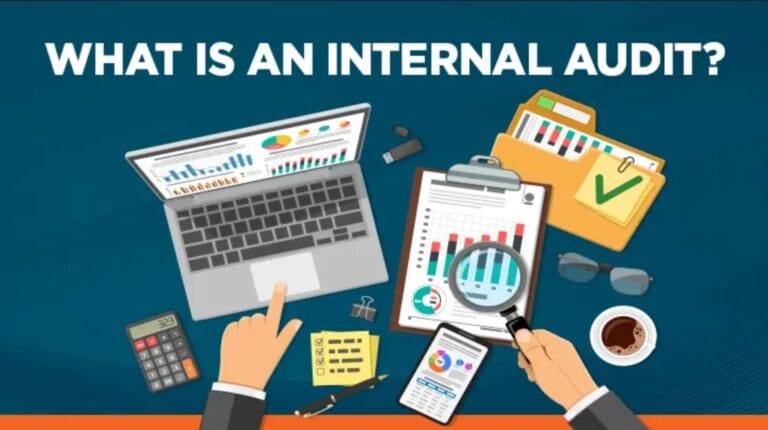Concurrent audit is a continuous examination of the financial transactions and operations of an organization as they occur. It is particularly prevalent in the banking sector, where it helps ensure that the day-to-day operations are conducted in compliance with internal controls, regulatory requirements, and established procedures. Here’s a detailed overview of concurrent audit:
Objectives of Concurrent Audit
- Real-Time Monitoring: Provide ongoing scrutiny of financial transactions and operational activities to detect and rectify issues promptly.
- Compliance Verification: Ensure adherence to regulatory guidelines, internal policies, and procedures in real-time.
- Risk Management: Identify and mitigate risks associated with financial operations, fraud, and non-compliance at an early stage.
- Efficiency Improvement: Enhance operational efficiency by identifying bottlenecks, inefficiencies, and deviations from standard procedures.
Scope of Concurrent Audit
- Financial Transactions: Verification of transactions such as cash receipts and payments, loans and advances, investments, and foreign exchange dealings.
- Operational Processes: Review of processes related to customer service, loan disbursements, credit appraisals, and documentation.
- Regulatory Compliance: Ensuring compliance with banking regulations, guidelines issued by the central bank (e.g., RBI in India), and other regulatory authorities.
- Internal Controls: Evaluation of the effectiveness of internal controls in preventing errors, fraud, and mismanagement.
- Risk Areas: Focus on high-risk areas such as large advances, non-performing assets (NPAs), treasury operations, and inter-branch transactions.
Process of Concurrent Audit
1. Planning and Preparation
- Define the scope, objectives, and methodology of the audit.
- Identify key risk areas and prioritize audit activities accordingly.
- Develop an audit plan outlining the schedule and resource allocation.
2. Execution
- Conduct daily or periodic checks on financial transactions and operational processes.
- Verify documents, vouchers, and records for accuracy and compliance.
- Perform analytical reviews and substantive testing to detect anomalies and deviations.
3. Reporting
- Prepare daily or periodic audit reports highlighting observations, findings, and recommendations.
- Communicate significant issues and non-compliance to management immediately for prompt corrective action.
- Compile comprehensive reports for senior management and the board, summarizing key audit findings and trends.
4. Follow-Up
- Monitor the implementation of corrective actions and recommendations.
- Conduct follow-up audits to ensure issues have been resolved and improvements sustained.
- Continuously update audit plans based on the findings and evolving risk landscape.
Importance of Concurrent Audit
- Early Detection of Issues: Identifies and addresses errors, fraud, and non-compliance promptly, reducing potential financial and reputational damage.
- Regulatory Compliance: Ensures ongoing compliance with regulatory requirements, minimizing the risk of penalties and sanctions.
- Enhanced Control Environment: Strengthens internal controls by providing continuous oversight and feedback on operational processes.
- Operational Efficiency: Helps streamline operations by identifying inefficiencies and recommending improvements.
- Risk Mitigation: Reduces the risk of financial losses by proactively managing and mitigating risks.
Concurrent Audit in Banking
In the banking sector, concurrent audit is a critical component of the internal control framework. It is usually conducted by internal auditors or external audit firms appointed by the bank. Key focus areas include:
- Branch Operations: Verification of cash balances, loan documentation, deposit accounts, and customer service processes.
- Loan and Advances: Review of credit appraisals, loan disbursements, recovery processes, and classification of assets.
- Treasury Operations: Examination of investment portfolios, foreign exchange transactions, and liquidity management.
- Compliance Functions: Ensuring adherence to anti-money laundering (AML) regulations, know-your-customer (KYC) norms, and other regulatory guidelines.
Concurrent audit is a vital tool for maintaining financial integrity, regulatory compliance, and operational efficiency in organizations, especially in the banking sector. By providing real-time oversight and early detection of issues, concurrent audit helps organizations manage risks effectively, ensure compliance, and enhance overall governance. Continuous improvement in audit practices, adoption of advanced audit tools, and integration of technology are essential for achieving the objectives of concurrent audit and sustaining long-term success.
At Ujjwal Gupta & Co
We, at Ujjwal Gupta & Co, are dedicated to delivering personalized, high-quality solutions tailored to meet your financial and business needs. With our team of professionals and a client-first approach, we ensure that every challenge is met with expert guidance and strategic insight.
We are dedicated to ensuring your business’s success by providing best service practice available in the industry and that too at a cost effective pricing. Our team of experts is excited to work with you and provide the support you need to thrive in the Indian business landscape.
Our only motive is to create Value for Our Clients and accordingly, have a Client Value System at our Office.
So, let us help you navigate the complexities of finance and compliance, empowering you to focus on what matters most — growing your business. Get in touch today, and take the first step towards financial peace of mind.
A Concurrent Audit is an ongoing audit of financial transactions at the time of their occurrence or shortly after. It is conducted to ensure that all transactions are accurate, comply with internal policies, and adhere to regulatory guidelines. This type of audit is mainly preventive and aims to detect errors or fraud early in the process.
Chartered Accountants (CAs) or audit firms appointed by the organization, typically banks, conduct concurrent audits. The audit can be performed by an external auditor or an internal team specialized in concurrent auditing. Auditors are often empaneled by the Reserve Bank of India (RBI), particularly for bank audits.
The key objectives of a concurrent audit are:
- To ensure real-time verification of financial transactions.
- To ensure compliance with regulatory and internal policies.
- To detect and prevent fraud or irregularities in daily operations.
- To assess the adequacy and effectiveness of the internal control system.
- To report any deviations from standard operating procedures promptly to management for corrective action.
Concurrent audits are mandatory in various sectors:
- Banks: The RBI mandates concurrent audits in branches dealing with high volumes of transactions, including treasury operations, forex, and loan portfolios.
- Large Corporates and Financial Institutions: Companies that handle complex transactions, high-risk areas, or require regular monitoring.
- Insurance Companies, NBFCs, and organizations dealing with large cash flows or sensitive operations may also opt for concurrent audits.
The scope of a concurrent audit varies based on the institution but typically includes:
- Loans and advances: Review of sanctioning, disbursement, and recovery procedures.
- Cash management: Monitoring of daily cash transactions, ATM operations, and vault management.
- Forex transactions: Real-time scrutiny of foreign exchange dealings.
- Investment portfolios: Reviewing securities and investments for compliance.
- KYC and AML compliance: Ensuring that Know Your Customer (KYC) and Anti-Money Laundering (AML) guidelines are followed.
- Large-value transactions: Monitoring high-value remittances or wire transfers.
- Treasury operations: Verifying money market operations, currency transactions, etc.
A concurrent audit is usually conducted daily, weekly, or monthly, depending on the volume and nature of transactions in the specific branch or department being audited. The frequency is determined by the risk assessment and internal policies of the organization. For high-risk areas like loan portfolios, cash handling, and foreign exchange, audits may be conducted more frequently.
The RBI provides detailed guidelines for concurrent audits in the banking sector. These guidelines define:
- The scope and areas of focus for the audit.
- The selection of branches and operations that require concurrent audits, typically focusing on branches with high volumes or sensitive operations.
- The appointment of auditors, who must be empaneled by the RBI for bank audits. The RBI also reviews audit reports during inspections to ensure compliance with regulatory norms.
The primary benefits of a concurrent audit include:
- Early detection of fraud: By identifying irregularities in real-time, the audit helps prevent fraud or financial mismanagement.
- Timely correction of errors: Errors in accounting or operational procedures are identified early, allowing for prompt corrective action.
- Improved compliance: Ensures that all transactions adhere to regulatory and internal policy requirements.
- Enhanced internal controls: It strengthens the organization’s internal control mechanisms and reduces operational risk.
- Real-time reporting: Provides management with immediate feedback on areas of concern, allowing for quicker decision-making.
Some common challenges in concurrent audits include:
- Volume of transactions: High transaction volumes in some institutions make it difficult to verify every transaction, necessitating a risk-based approach.
- Timeliness: Concurrent audits require quick reporting and prompt action by management, which may not always happen in large organizations.
- Resource constraints: Banks or firms may face difficulties allocating skilled auditors to every branch or unit needing concurrent audits.
- Technological complexity: Auditing systems that are integrated with advanced technologies like Core Banking Systems (CBS) require auditors to have strong technical expertise.
- Concurrent Audit is ongoing, focusing on real-time or near real-time verification of transactions as they occur. It aims at preventing errors, fraud, and non-compliance during the course of business operations.
- Statutory Audit, on the other hand, is conducted annually or periodically to examine and verify the financial statements of an organization. It assesses whether the financial statements are accurate and prepared in accordance with legal requirements and accounting standards. Concurrent audits focus more on operational risks and controls, while statutory audits provide a broader financial reporting assurance.
Why Choose UGC?

Client Centric Approach
Client is the key driver of our service offerings. Our approach to service offerings is based on a client centric and customized approach. Our specialized teams are a mix of technical and industry experience in order to serve clientele for their specific needs.

Team Work
We have built high performing teams supported by strong work ethic. Our team is a mix of experts, professionals and support staff from technical and varied academic, social and ethnic backgrounds. We believe diversification plays a vital role in motivating the team.

Quick Turnaround
We always endeavour for a quick turnaround time to serve our clientele. We are supported by an experienced and client focussed support teams to offer timely services to our clientele. In case of any business exigencies and time sensitive service requirements, you can always count on us.

Open Communications
We believe that open communication is the core principle in order to demonstrate trust, build long lasting and valuable relationships with clientele. We are committed to ensuring transparency in communication, service offerings and delivery. We provide professional services to our clients.

Client Value System
We value for the Client time and thus, we offer services that are value for money. Quality professional services are provided to our clients, so that they are able to achieve their desired results. We are a quality trademark in the industry and thus, our clients count on us always.

Quality in Delivering Work
Our service offerings are driven by quality and reviews at every level. We strive to provide a qualitative and value-added delivery to our clientele. At all times, we endeavour to provide exceptional client service by meeting client expectations and driving client satisfaction.





















